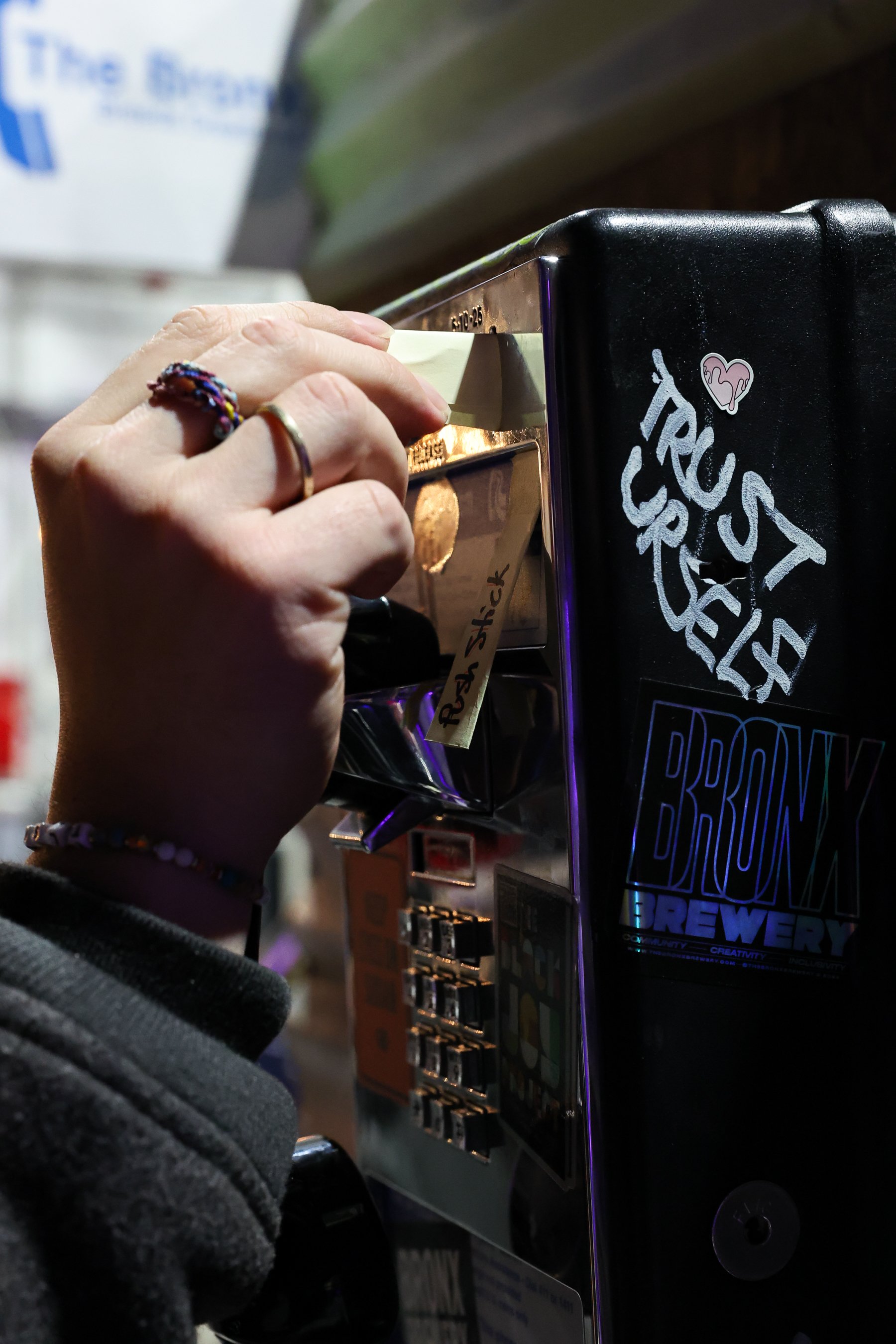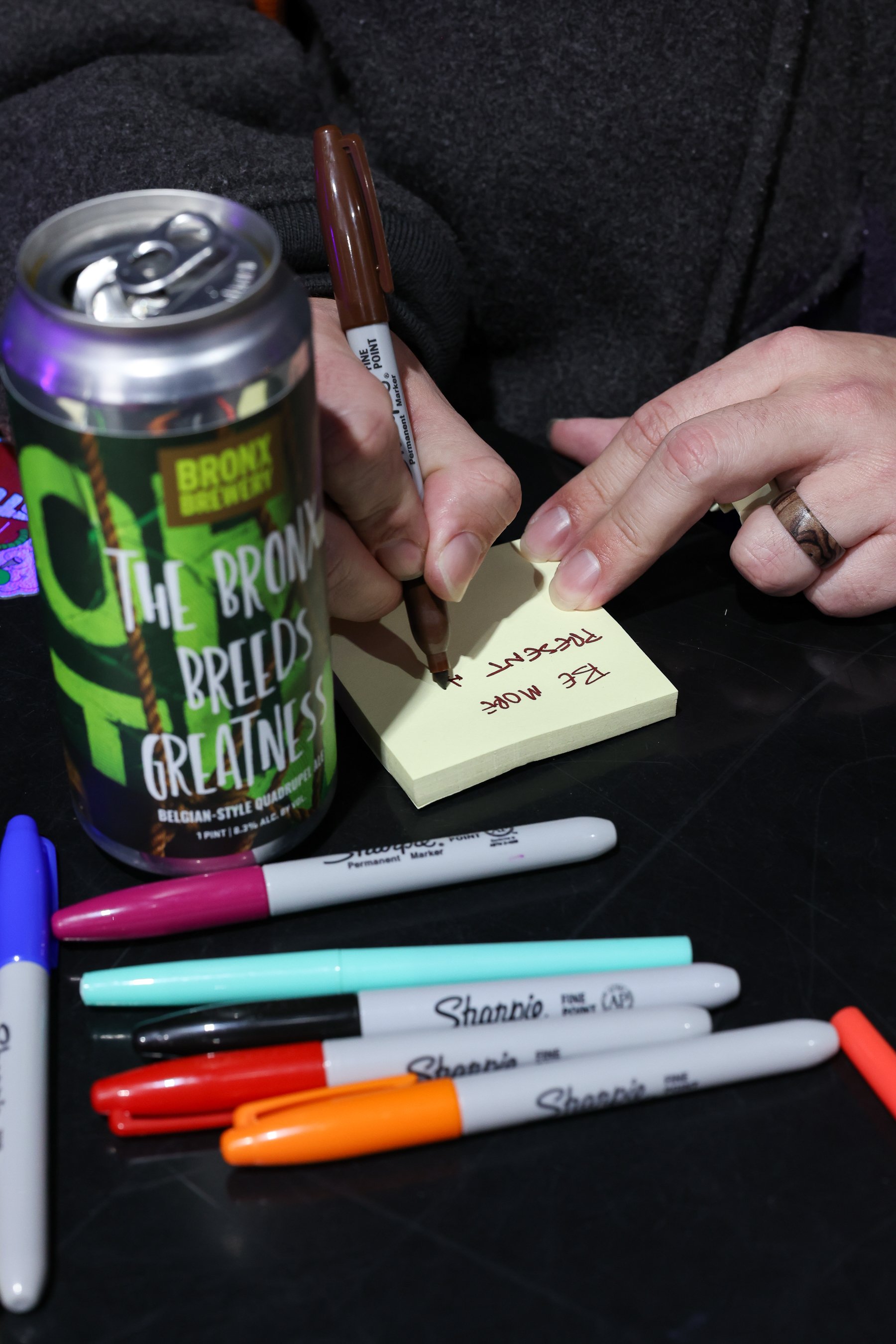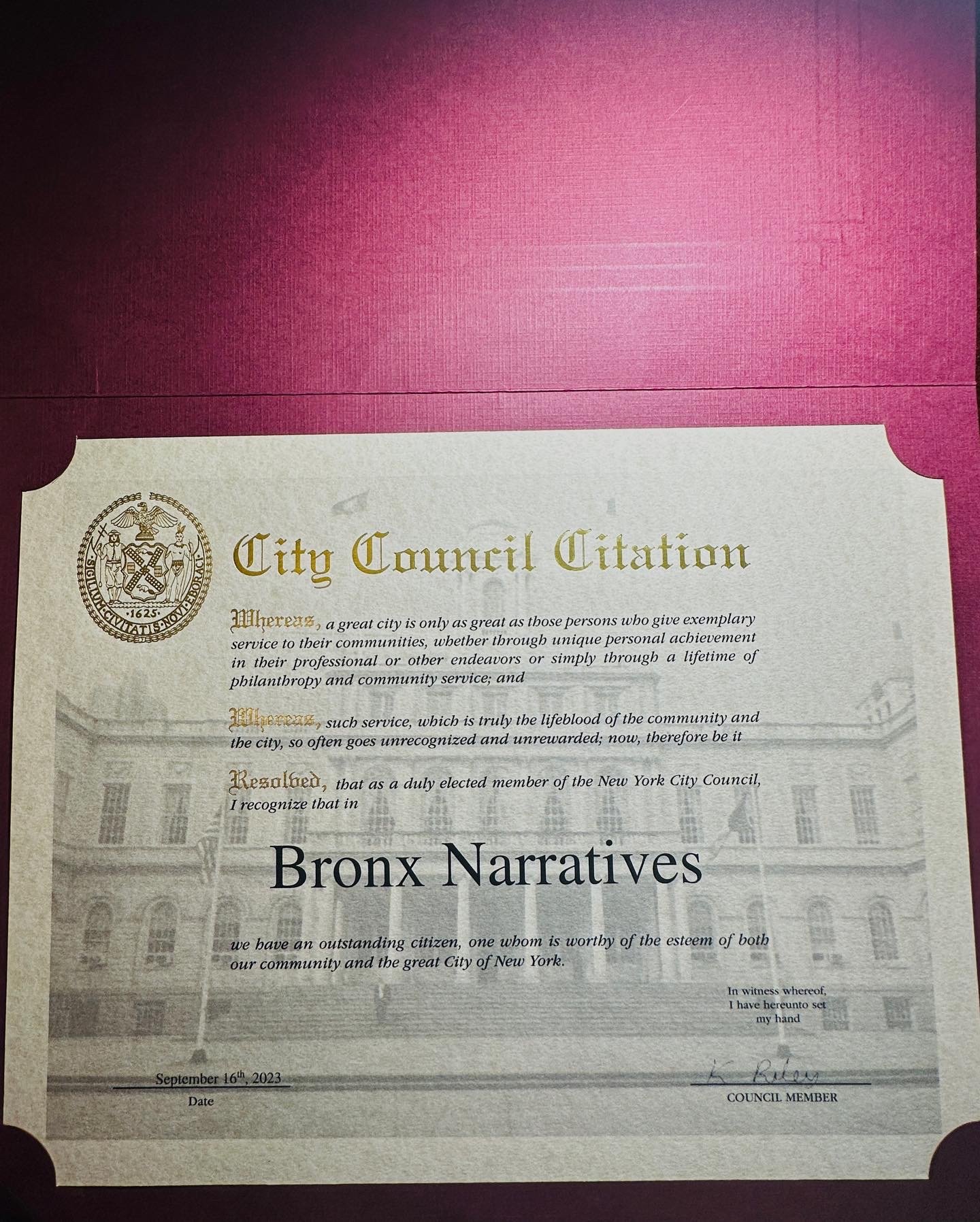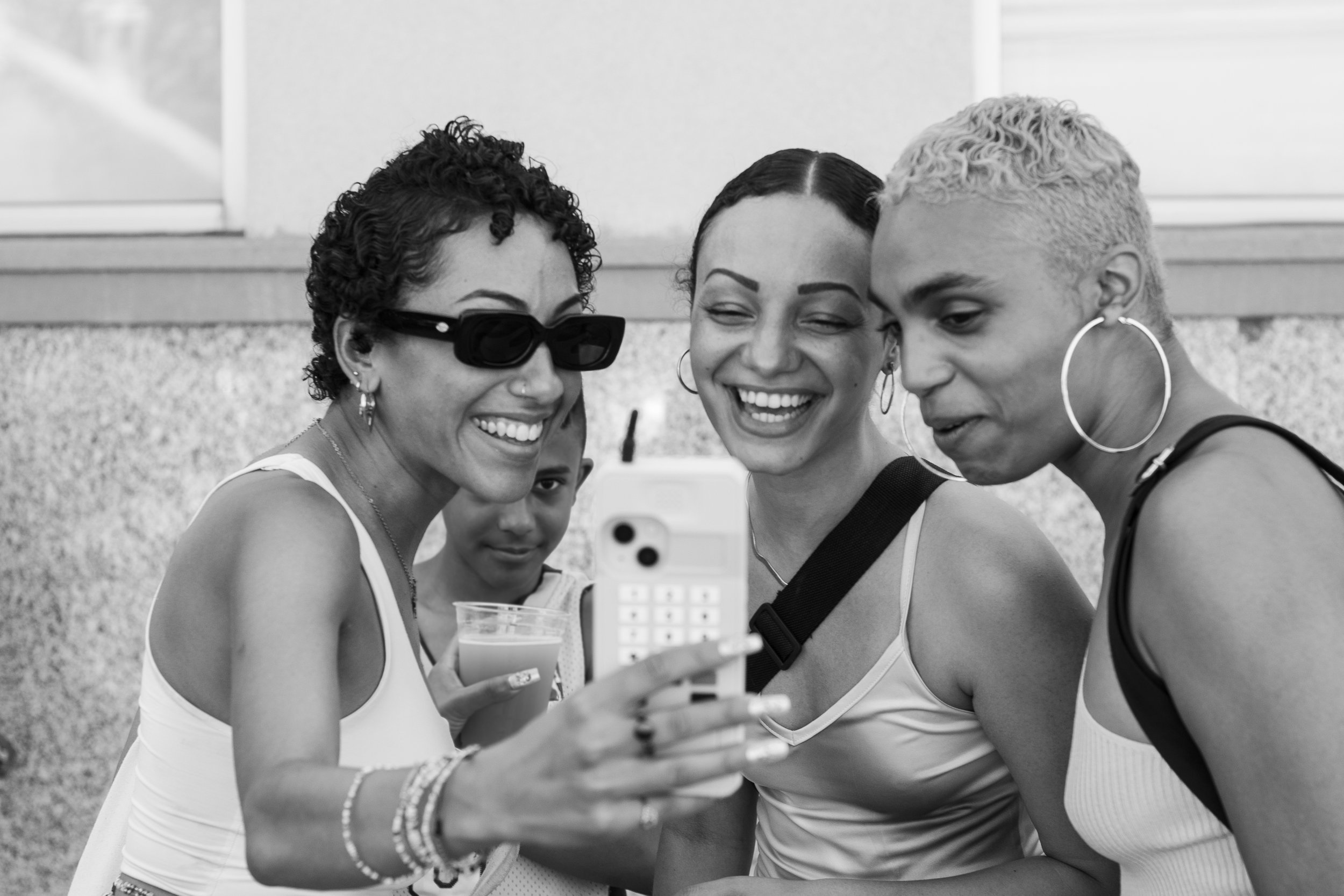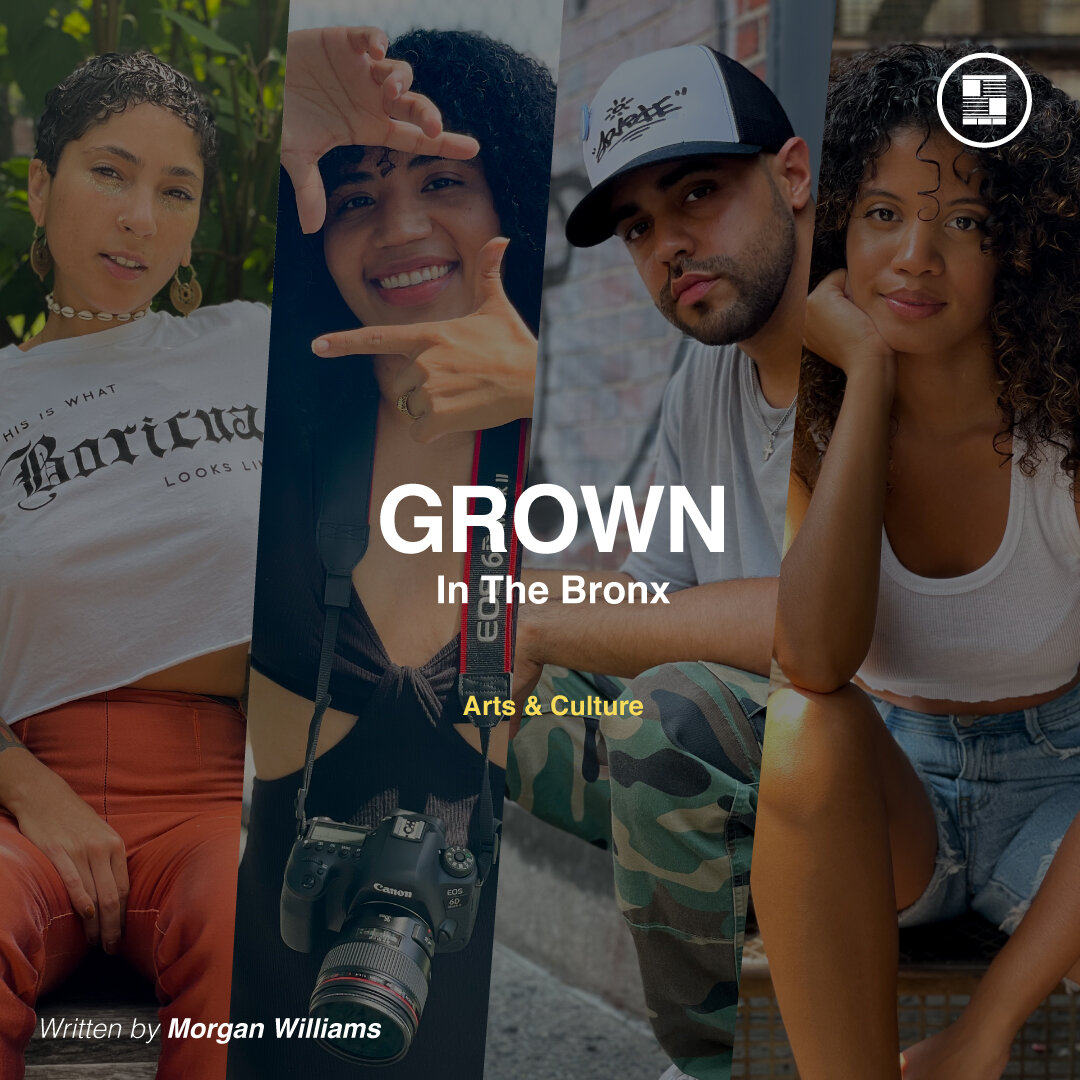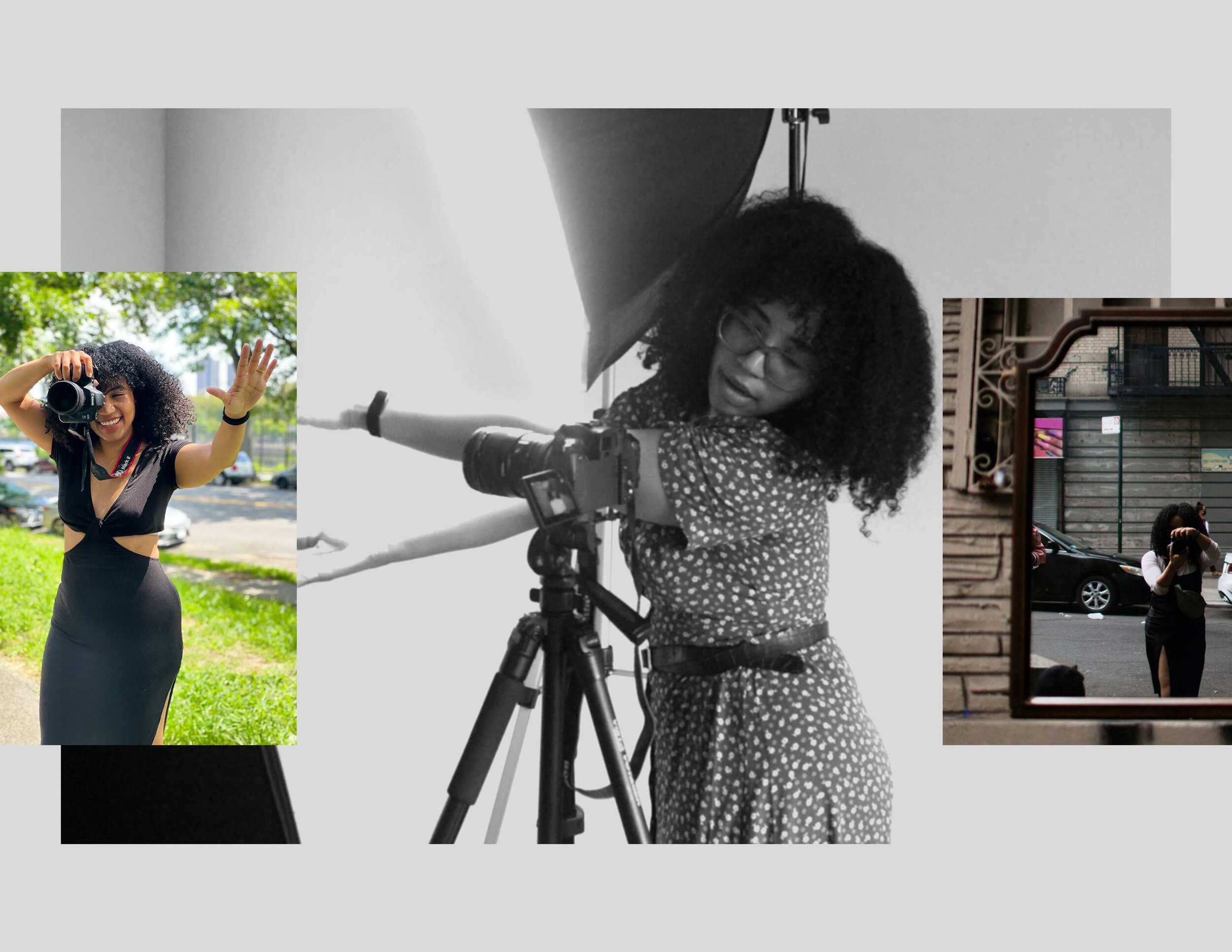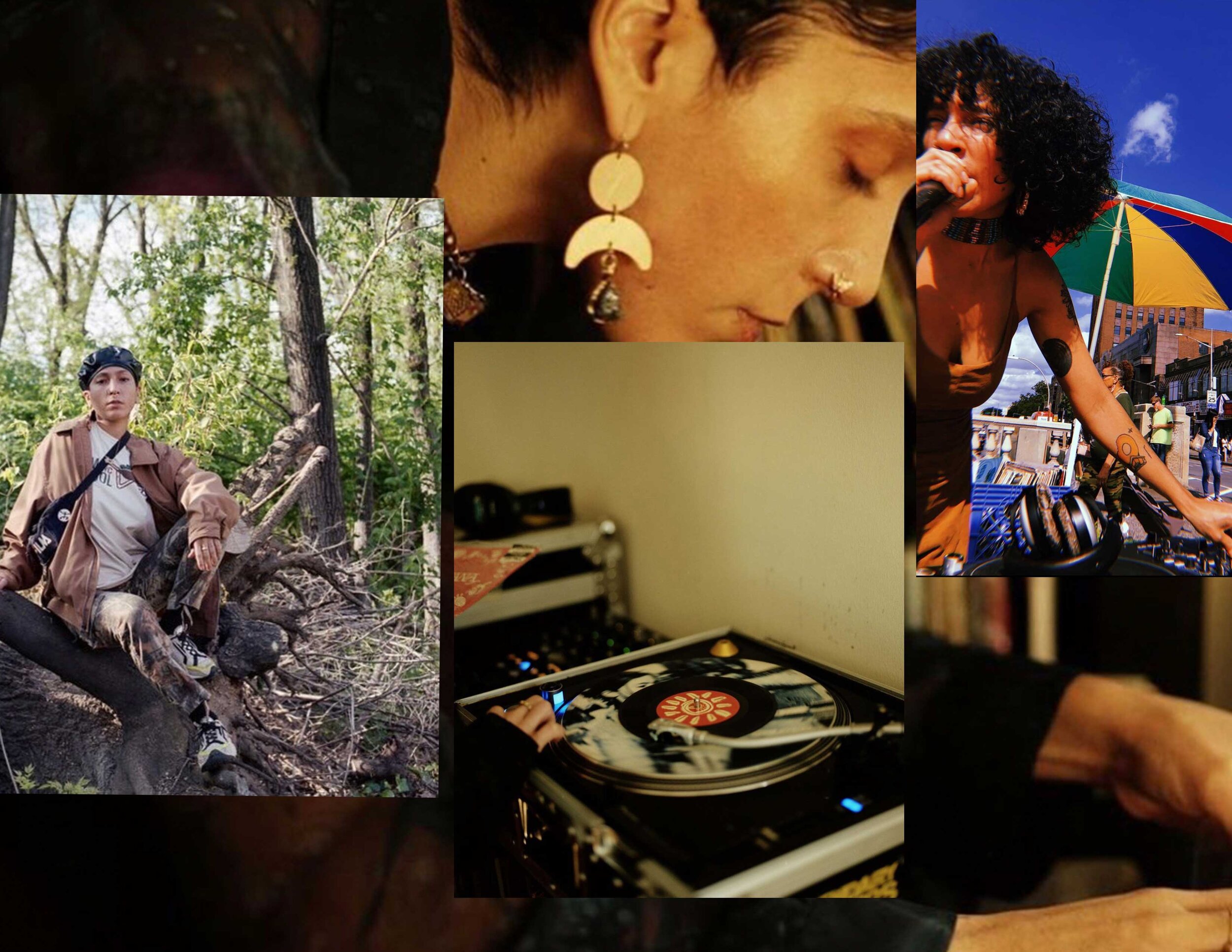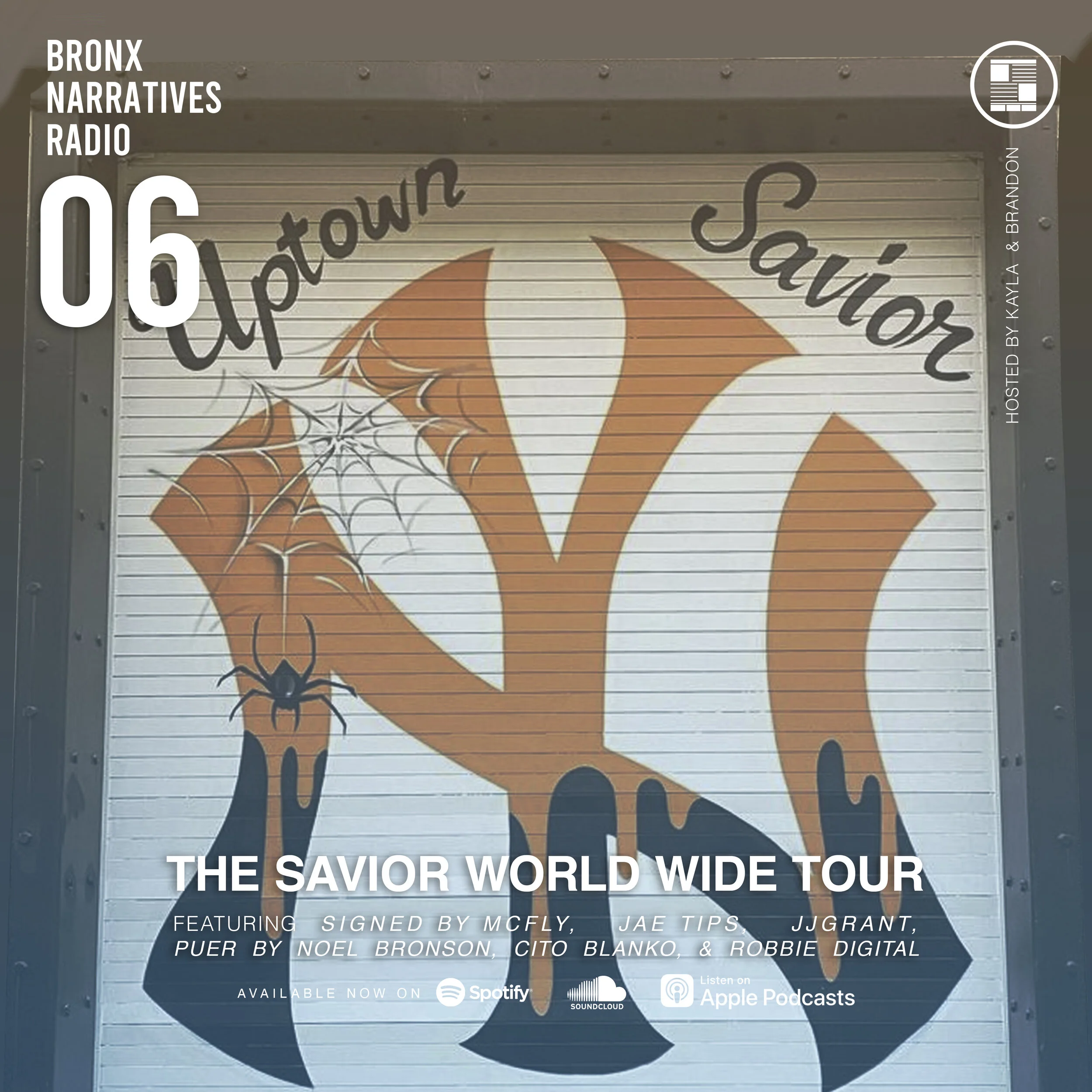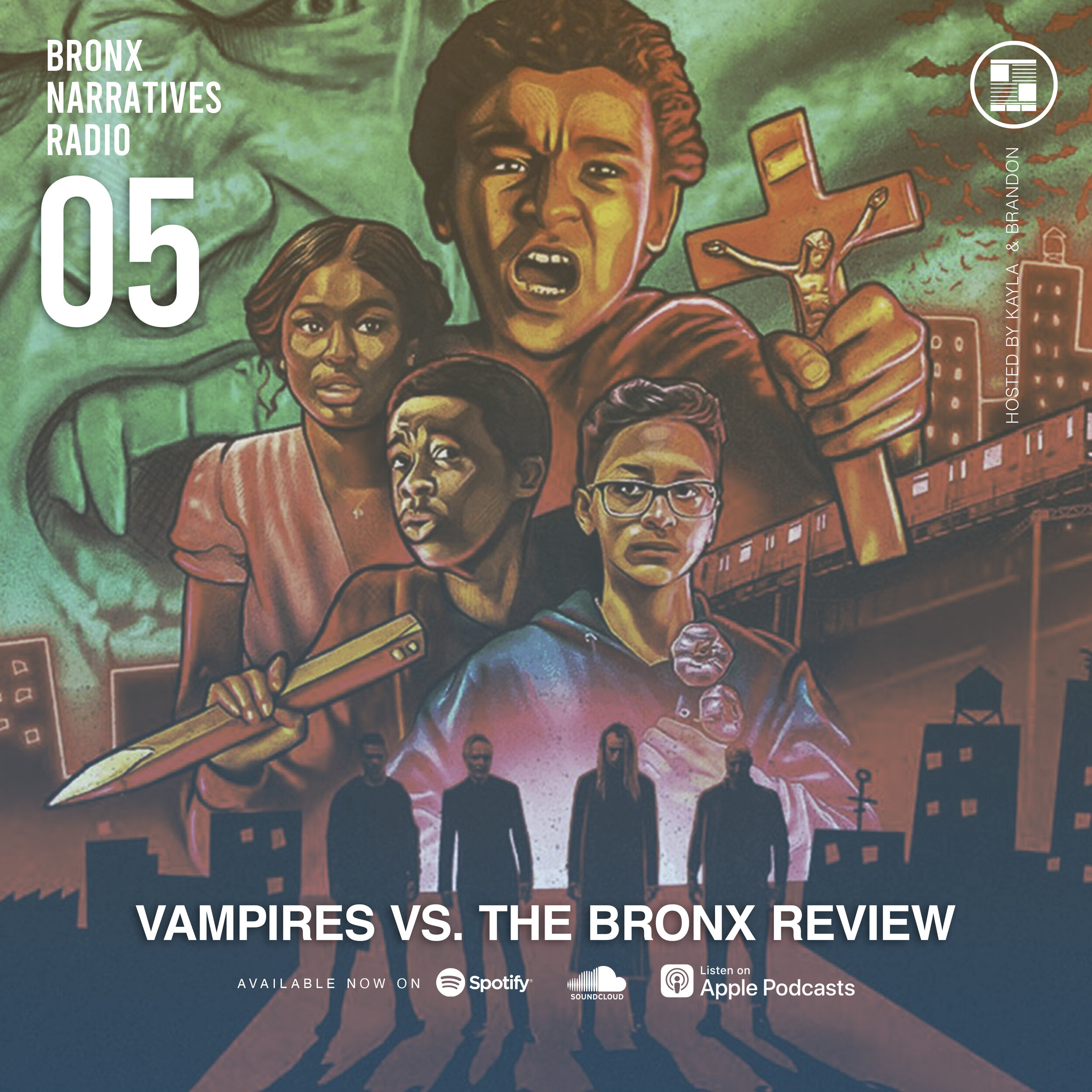A Walk in the Park with Bronx Mama
It was a beautiful day strolling the Bronx River Trail and kickin’ back at the New York Botanical Garden, in partnership with Bronxmama, what a great way to start the summer.
Y Series Release - The Bronx Breeds Greatness
Photos by @slingshotmenace
Thanks to everyone who attended our event this past weekend, as we celebrated Walter Cruz’s new beer release and opened the year with a meditation, guided by Kevin Vargas.
We’re reminded that being in community with ya’ll, is one of our favorite things, and we’re certain there will be more diverse opportunities for just that—this year.
Bronx Narratives Gets Proclamation at Summer Sounds Event
To be recognized, seen, and acknowledged.
We’re incredibly thankful for the proclamation from Council Member Kevin Riley and his team over the weekend.
The second annual Summer Sounds event was a joy to attend!
A Very Bronx Summer
Photos by Jarrett Paige, Hector Santos and Jelani Ameer
A joyful block party celebration, in partnership with the Gun Hill Brewery and Kevin Riley.
AUDIO STORY - Teaching During a Pandemic
Q+A by Javon Chasten
Yancy Sanes and Danielle Bassie are two co-teachers at Fannie Lou Hamer High School. During the pandemic they were faced with new challenges, in which they had to overcome. Checking off a bucket list item together, they wrote a book, South Bronx Adventures : Teaching During A Pandemic , highlighting the lessons they learned while teaching during unprecedented times. For our first installment of audio stories, our moderator—Javon, learned what each step of the process entailed. From finding new ways to connect with students virtually to taking care of their own mental health during that time. Press play below:
Lime x Bronx Narratives
We partnered with Lime Scooters, Bern Helmets, Coffee Bay Restaurant and Gun Hill Brewery to host a free community ride exploring the northeast section of the Bronx.
Grown in the Bronx
Written and Photos by Morgan Williams (Left to right: Sunny Cheeba, Leomary Rodriguez, Kevin “Advice” Toledo and Flordalis Espinal)
The Bronx has been a recurring character in the origin stories of some of today’s most talented and successful artists. But are these artists needles in the giant haystack that is the Bronx borough? Or is there a larger art scene that exists but that hasn’t been publicly acknowledged yet? Four Bronx natives believe that the art scene in the Bronx is overflowing with talented and passionate individuals but that their vibrancy tends to only be felt by those who already know that it exists. From maintaining their creativity through the pandemic to seeking their insight on how to reimagine the art scene in the Bronx, interviewing these four creatives helped hold a microphone to the hum of talent actively buzzing in the Bronx making it now impossible to ignore.
As she holds the camera steadily and poised, Leomary Rodriguez simultaneously makes her subjects feel comfortable in front of her by validating their expressions and poses. Using cement steps in front of a Washington Heights apartment building as their set, the different members from the cast of the online web series Dominican York flip flop back and forth confidently before her, based off of her subtle directions. Similar to watching a close friend take photos of another friend, you’d never know this was the first time Leomary was meeting them. As she moves the camera screen with ease, she pays attention solely to the person in front of her never once getting distracted by the six other members chatting behind her or music blaring in the cars driving past her.
Leomary Rodriguez is only one of the many native Bronxites that is paving a way for herself by following her talent and her passion, which in her case is being a documentary filmmaker and director. Born and raised in the Bronx, Rodriguez first started watching films and TV as a way of bonding with her mother. “I caught my mom always staying up late watching TV so I was like boom that’s how I’m going to bond with my mom. So it was a comfort thing for me,” she said.
Images courtesy of Leomary Rodriguez, left adjacent by Morgan Williams
“I wish people knew that we can talk however we talk and we can present ourselves however edgy we present ourselves because I feel like there is an edge to people who live in the Bronx. But we’re so dynamic...expect the unexpected from people who present themselves in a way that others aren’t used to.”
For college, Rodriguez left the Bronx to go to school in Buffalo, New York which resulted in her gaining a whole new appreciation for her home. “It’s good to have that type of experience, but all it created was a longing to reconnect with this place that I grew up at...the culture that I’m used to and the convenience of it and just the diversity of it is not out there in these cities. So coming back I was like ‘nah, I gotta tell these stories’.
Rodriguez followed through on her goal to spread Bronx stories as she is now the Content Acquisitions Coordinator for Bronxnet, where their mission is to provide programming opportunities to educate, inform, and promote community voices for the Bronx and beyond. “I knew there was talent in the Bronx, because like I’m talented, so I’m like there’s got to be more of us out here,” she said confidently. She was right and she makes an effort to elevate the voices of other talented people.
Rodriguez created Directed By Us, a digital platform for the purpose of championing stories and connecting BIPOC creatives and entrepreneurs with each other. Eventually, she wants to turn the individual stories she shares into a TV series. Being in the Bronx during these turbulent times, Rodriguez witnessed her community come together through the emergence of photo walks, including some organized by Girls who Shoot, along with a rise in community gardens and fridges. While many struggled to stay creative during these times, Leomary kept her mind at ease by journaling and documenting more stories for her Directed By Us series including highlighting Christian Montero’s The Lantern Project. She also joined a group, initiated by her friend, where the members in the group create projects that challenge themselves and then present those projects to the rest of the group. “We hold each other accountable and congratulate each other on the progress.” It’s these types of important communities and support systems that encouraged Rodriguez to continue to push herself and her creativity during the pandemic.
In 2020, Rodriguez won the award for Best Director in the Bronx 48-hour Film Challenge for her horror film, “Night Call” which centers on a cautionary tale of what happens when dating during quarantine goes wrong. She said her strength lies more in her ability to visualize a story being told rather than coming up with a story from scratch. As a result, Rodriguez said she loves documentary filmmaking because you can let people tell their story themselves, she just helps guide them through it. “I want to see what else is out there, who else I can meet, how I can tell their story,” she said with sincerity.
As Rodriguez mentioned, she is not the only talented person in the Bronx. So, her suggestion for reimagining the art scene in the Bronx? Create our own platform. “Have our own streaming platform. There’s a global presence we can cultivate here.... it’d be great to have guidance to get us there,” she said. Rodriguez might be onto something considering the plethora of unique voices the Bronx has to offer that could change the narrative around the Bronx as a whole.
“I wish people knew that we can talk however we talk and we can present ourselves however edgy we present ourselves because I feel like there is an edge to people who live in the Bronx. But we’re so dynamic...expect the unexpected from people who present themselves in a way that others aren’t used to.”
Images courtesy of Flordalis Espinal and top centered by Morgan WIlliams.
A true example of performing the unexpected can be found just a quick metro swipe away to West Farms where Girls Who Shoot founder, Flordalis Espinal, plots her next photo walk. Espinal had over 300 people sign up to attend only her second Girls Who Shoot photo walk over the pandemic. A number that not even she was expecting. Unfortunately, due to social gathering rules she was unable to host all 300, but the demand for the organization that she created was evidently high.
Espinal, a Bronx born and raised photographer, says her photography start dates back to using up the rest of the film on her mother’s disposable cameras as a kid. Switching from digital to film in recent years, Flordalis has become a pretty prominent Bronx based portrait photographer. After purchasing a manual camera from the 1940s she had trial and error when it came to figuring out the proper way to use it, but eventually she figured out how to make it work best for her. “I would take double exposures by mistake at first, but once I figured out how to do it I started doing it more intentionally...I wanted to capture the duality of a person,” she explained.
Espinal started attending photo walks, which are when a group of photographers meet up in one place, to walk freely or through a certain route and take street photography and even photos of each other. While the photo walks were great for networking and meeting new photographers, Espinal noticed one glaring problem: there were very few women. As Espinal’s network grew and she met more and more women photographers scattered around the area, the idea for Girls Who Shoot was born. “I was like wow I need to bring all of you guys together and invite more people...but what I noticed about my friends who were photographers that were women was they modeled as well. So, for my photo walks I not only invite photographers and videographers, but I invite women who want to get their pictures taken as well. So that way we all can network and give content to each other.”
“That’s what I always try to capture in my pictures, there’s beauty in the struggle, there’s beauty in these gritty areas of the Bronx.”
The first Girls Who Shoot photo walk began as 50 women photographers coming together in the Bronx and has now grown into not just a community organization boasting over 2,000 followers on Instagram, but also a worldwide movement as Girls Who Shoot has inspired women photographers in Los Angeles and the UK. “There are a lot of women who just want to meet other women creatives...I just needed more inspiring women in my life,” Espinal shared.
It’s not hard to imagine that being a portrait photographer during Covid-19 isn’t ideal considering half of your subject’s face has to be covered. Espinal found herself struggling to like the pictures of people in masks because “the whole point of a portrait is to tell a story through someone. That comes through expression and body language and if half your face is covered, I can’t tell as much about you,” she explained. Despite the hindrance of masks, Espinal spent a lot of time during the pandemic documenting her neighborhood and taking self-portraits. As I listen to Espinal speak, I start to grasp a greater understanding of the extremely well respected and talented reputation that she holds as she reveals with a shrug that she taught herself how to develop her own film, as a result of not being able to get it developed elsewhere. At this point, it becomes extremely clear that not even a worldwide pandemic can stunt her creative flow.
Growing up in a poor neighborhood in the Bronx inspired a lot of Espinal’s work and her desire to shoot portraits. “The area I grew up in was a very poor neighborhood, but my mom just made the best out of what she had, and I think that has just allowed me to see the beauty in the struggle. That’s what I always try to capture in my pictures, there’s beauty in the struggle, there’s beauty in these gritty areas of the Bronx.” Espinal managed to find strength instead of sadness coming up and she credits that strength as inspiration in what she tries to capture in her photos. It’s also because of this strength and beauty in the struggle that Espinal believes the Bronx has the most authentic and growing art scene. “You just have to be in it and have to network with people to know there’s an art scene.” That being said though, there is still work to be done to better advertise the thriving culture of artists and creatives here in the Bronx and Espinal believes that there just needs to be space to do that. “We need nicer venues and more access to certain spaces and more access to opportunities that could highlight people’s work...I wish people knew that there's beauty here and it comes from the people because the people are true to themselves.”
In the future, Espinal hopes to open up a store and creative space for Girls Who Shoot that would offer women a place to come in and create. She also hopes to continue to expand outside the New York area.
Images courtesy of Kevin “Advice” Toledo
Someone else who sees so much beauty in their community is none other than Kevin “Advice” Toledo, a portrait street photographer and experimental hip hop artist born and raised in the Bronx. Toledo’s music name, Advice, was inspired by his perspective and experience as someone who has worked in social work and consistently advocated for others. Everything about Advice’s music is intentional including the cross in the “c” of his name which is supposed to resemble a cents sign like he is giving his two cents with his music. “The irony of advice is that advice is the one thing that you give to others but don’t follow yourself or that you need but won’t take from others.” Advice’s focus with his music is to tell mental health-based stories and encourage people to feel the emotions that they are feeling, not to ignore them.
Advice sits across from me at a local diner on Fordham Road near the school where he serves as a guidance counselor to middle school kids. The passion radiates off of him as he discusses his music journey. “I was that kid in school banging on the tables and having ciphers with the homies. I never believed that I could seriously pursue something like rap.” Advice took it further than just pursuing rap, when he bought his first microphone, he embarked on a journey of creating music so personal it became extremely unique to him. “I don’t think I make anything that sounds familiar to anybody...I say experimental because I’m very open to what I want to do with my music.”
“I was that kid in school banging on the tables and having ciphers with the homies. I never believed that I could seriously pursue something like rap.”
Before I met Advice at the diner, I walked down Fordham Rd. listening to his album while dodging pedestrians on the sidewalk. Hearing his words in a way that felt like he was speaking directly to me, the music felt unique to him because he’s simply sharing what he sees and knows. “There’s a lineage of mental illness, a lineage of addiction, and not just in my family but my environment, like I go outside, and this is what I see.” Advice says the stories of struggle and pain that he’s seen in the Bronx and his personal experiences shape his music and his desire to focus on mental health.
Over the pandemic, Advice really pushed himself to get an album out and finish the projects he had already started, since up until this point he had never put out a body of work. “I was stuck for a while, but I had to discipline myself to get this project done... The time put it more into perspective for me. Like this is something that you have and that you can do something with but you’re not doing it and you need to do it.” After setting parameters for himself, Advice went above and beyond just putting out his music, he took complete creative control of the writing, producing, recording, and even graphics.
Advice’s music isn’t the only place his passion lies, he is also very involved with the youth in his community and runs and also assists with existing hip hop programs for kids to help them write and rap their rhymes to be able to express themselves. “A lot of creatives look out for themselves, but I look out for the future. Being a creative from the community I know it’s important to share my mindset and gifts with them because I know how much I would have benefitted from that, growing up in this community.”
Advice believes that the art scene in the Bronx could have so much potential for more if people just came together and supported each other. However, he admits that he has been guilty of only thinking about himself and his art before but has made an intentional shift to think more about the creatives around him as well. “Nobody’s thinking there’s room for everybody, everybody is just kind of staying afloat and doing their own thing. I think if we changed it from “I” to “we” things would be different.” How does Advice know things would be different? Because he sees the incredible talent brewing around him and knows what the Bronx is capable of. “Understand that the Bronx is a beautiful place, because we’ve been through so much as people. I say that a lot because I work in a middle school, so I see what the kids are dealing with.”
Eventually, Advice hopes to blend the worlds of hip hop and therapy and to bring people into his world of empathy. “The Bronx is beautiful because of its pain, and I think that’s how I view myself and how I want everyone to view themselves.”
Images of Sunny Cheeba courtesy of Roy Baizan, Guarionex Rodriguez, Jr. and Carlita Lopez
The Bronx is beautiful in more ways than one, and as I hop on the 1 train to Van Cortlandt Park, I scroll through Sunny Cheeba’s latest Instagram stories of her picking up trash and tending to the plants in a Bronx community garden she works at Sunny Cheeba, a Bronx native who acts as a farmer by day and vinyl DJ by night, has always been into analog culture which is why it’s no surprise to see her schlepping vinyl records across town for her DJ set. “I always compare it to archaeology; it feels like you’re digging in this dust for this music that’s trapped in these records. It feels like digging for gold.” Cheeba isn’t the only one who likes to dig for gold, in 2015 her and other vinyl DJs in the Bronx came together to create a crew called Uptown Vinyl Supreme that would serve as a collective for support and community.
The way Cheeba talks about music is very unique in the sense that she sees her job as a service to others. She says she feels a spiritual connection to the records, like pieces of history that she is supposed to bring to the people to liberate them. It also allows her to break down barriers that would normally exist outside of music to connect with people. “Music is a universal language. It allows me to talk to many different people that I probably wouldn’t normally get the opportunity to talk to, but I get to talk to them through sound and talk to them through music.” In the age of everything being digital, talking to Cheeba about her vinyl was incredibly refreshing and the way she spoke about them made it clear she knew how special it was too. She described her style as “Nuyorican but bringing it back to the motherland kind of thing,” in reference to the types of music she likes to play for crowds.
There’s more to Cheeba than just her DJ reputation; she also serves her community by being a part of two different green spaces in the Bronx, the Kelly Street Garden and New Roots Farm in the South Bronx. The self-proclaimed funky farmer began her farming journey in 2017 and attended farm school NYC to learn about farming and visit community gardens. “Learning to grow food, this is something that a part of me felt like, ‘how can I give back to the land that has been helping me?’”
“I always compare it to archaeology; it feels like you’re digging in this dust for this music that’s trapped in these records. It feels like digging for gold.”
When the world shut down, Cheeba who is usually always on the go was forced to shut down with it like everyone else. She managed to still find ways to offer her skills to the people around her by participating in a weekly zoom meeting where she and other DJs provided the music for artists to do their work to. “It reminded me that everyone is in it. Being able to provide a soundscape for people to create was so beautiful.” Lockdown wasn’t easy for anyone, especially those like Cheeba who are constantly looking for ways to do for others. Unfortunately, during the pandemic Cheeba was bedridden for a few months due to a surgery. She used this time to create merch, work on medicines, and write a grant that she was recently approved for that allowed her to bring soulfrito con bomba into her community garden space, as a way to fuse music and food together as forms of medicine and as a means to preserve the culture. Even in a state of immobility, Cheeba wanted to do for her community which shows that while her music and community gardens have their own beauty, her service provides its own special touch as well.
Cheeba believes that reimagining the art community in the Bronx means creating more hubs for creatives. “I just think we’re very scattered. In other places there are downtown areas. There’s no central area here. You gotta be in the know to know what’s going on.”
This is a common theme between all of the creatives: in order for the Bronx art scene to really thrive, creatives need a central place to collaborate, share their work, and support each other. “If we could have hubs created by us then we could share space and build up.” It can’t be relied on a small few to create space for all the Bronx creatives, but an entire community effort. Cheeba’s goals long term would be to get land and create a space for artist residencies and communal workshops. She just needs people to help bring that vision to life.
“I love the Bronx so much, I really do. From the people to the energy to all the greenery and definitely just the vibe. I think there’s so much to be grateful for and so much to be proud of and still so much to work on,” Cheeba said.
BXN RADIO: S2 EP 07 - The Future of Healthcare for Black Women and Women of Color
Subscribe on Apple Music / Spotify
The latest episode of BXN radio wraps up Women’s History Month with Ashlee Wisdom, creator of Health in Her Hue, an up-and-coming healthcare app designed to provide women of color access to culturally competent and reliable healthcare professionals.
Ashlee has Jamaican and Bahamian roots and represents the Bronx, her childhood home. Health in Her Hue was inspired by Ashlee’s own experiences with seeking healthcare as a Black woman, as well as insights from her career in public health policy. During the podcast, she shares one of the most startling statistics: Black women are three to four times more likely to die from pregnancy related complications.
Health in Her Hue aims to shed light on this and other disparities disproportionately affecting women of color, but more importantly offer a solution. With recent funding from a grant provided by Serena Williams, a viral post that contributed to 34,000 people signing up for the app and growing media coverage Health in Her Hue is proving that there is a need for a medical network that prioritizes healthcare for Black women and women of color. Ashlee and her team are using the power of tech to make it happen.
BXN RADIO: S2 EP 06 - The Savior Worldwide Tour
Subscribe on Apple Music / Spotify
This episode of BXN Radio is jam packed with heavy-hitter designers and creatives that have been leaving their mark in and beyond the borough. Jae Tips, Mugzy McFly, JJ Grant, Noel Bronson, Cito Blanko and Robbie Digital drop in to talk about The Savior World Wide Tour; their multi-state pop-up shop which made rounds in L.A and Atlanta before coming back home to the Bronx. They discuss traveling during the pandemic, why they cancelled the Chicago pop-up, their favorite moments on the road (Slutty Vegan, how about the sponsor?) and more.
Listen to our hosts Kayla Smith and Brandon Chacon talk with the crew about their full circle experiences on tour, their personal sources of inspiration, the importance of finding your ‘why’, what's coming in the new year and the future of the Bronx in this episode that wraps up 2020 for BXN Radio!
BTW: We’ve been social distancing and interviewing guests from home so you will hear some connection interference.
BXN RADIO: S2 EP 05 - Vampires Vs. The Bronx Review
Subscribe on Apple Music / Spotify
BXN Radio hosts Kayla and Brandon discuss Netflix's recent release, Vampires Vs. The Bronx, a comedy-horror written by NYC transplant, Osmany Rodriguez.
They discuss the movie's theme of gentrification, delving into the complexities of the controversial process, and the character's reactions to changes in their community. The two also weigh in on what they view as stereotypical urban tropes running through the film.
They conclude the episode discussing their favorite moments, sharing how they would survive facing "Vampires Vs. The Bronx" and giving the film their personal ratings.
Bronx Picks for this episode are Dark Notes by Signz The Trap Poet and Take My Time by Josh DWH.



